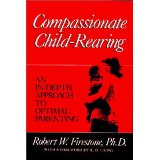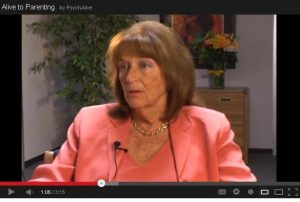7 Warning Signs That a New Mom Needs Help for Troubling Emotions
“Nobody would believe what an effort it is to do what little I am able.”
– Charlotte Perkins Gilman, The Yellow Wallpaper, 1892
 For some new moms, motherhood sparks surprisingly difficult emotions.
For some new moms, motherhood sparks surprisingly difficult emotions.
We expect new mothers to greet a newborn with joy and delight. But not every woman will feel these emotions after childbirth.
Days, weeks, and months after giving birth, some mothers are overwhelmed by exhaustion, numbness, and frightening thoughts of harm to the baby. These are signs of postpartum depression (PPD) or other perinatal mood disorders (PMADs). Overwhelming emotions can be traumatizing for the new mom and the family. And they warrant treatment.
Why Emotional Support from Friends May Not Be Enough
Friends and family may try to be supportive. But it’s important to recognize when social support is not enough to cope with postpartum distress, says Karen Kleiman, author and founder of the Postpartum Stress Center:
Women are rarely informed about the range of emotions that can develop after the birth of their baby. When they experience difficulty, they are often silenced by well-intentioned healthcare providers or family members: “all mothers experience this”, or “this is normal,” or “you’ll feel better if you get out of the house,” or “find a hobby.” This advice doesn’t work. In fact, it can make her feel worse, misunderstood and isolated.
I agree with Karen that this mental health issue does not get the attention it deserves. We need to recognize trauma in the experience of being overcome by out-of-control thoughts and feelings.
All of us – from doctors to therapists to family and friends — can learn something to help.
Signs and Symptoms of Postpartum Depression
According to the Centers for Disease Control and Prevention (CDC), symptoms of postpartum depression may include:
- Trouble sleeping even when the baby is sleeping
- Extreme fatigue
- Feeling numb or unable to bond or connect with the baby
- Difficulty concentrating
- Negative or frightening thoughts about something harming your baby
- Anxiety that you may not be able to care for your baby or may harm your baby
- Feeling ashamed, guilty, or worthless as a mother
What this list of symptoms doesn’t reflect is the overwhelming guilt or shame that most women struggle with, especially if they don’t understand PPD or see it as a real, treatable condition. These issues – and the stigma we have against talking about mental health — compound the difficulty in getting the help they need.
Postpartum Distress is More Common Than You Think
PPD is not the same as the “baby blues,” which are mood changes and adjustments during the first two weeks after childbirth. Research finds that 85% of women experience these normal and expected symptoms after childbirth. They usually resolve on their own.
Karen Kleiman’s research finds:
- 91% of new moms experience frightening or scary thoughts and feelings about caring for their newborn
- 88% of dads also experience fearful or scary thoughts such as anxiety especially around the ability to care for their baby
It is normal to have a little bit of worry about the way you feel toward a new baby at first. However, if your concerns last longer than two weeks, that is good reason to seek help from a doctor or therapist.
Admitting to Depression is Hard for Many New Moms
The CDC says that between 8 and 19% of mothers after childbirth report “having frequent postpartum depressive symptoms.” This number is probably low, because it only counts women willing to admit in a survey to having frequent symptoms. What about those who were not ready to share their struggle? “Every woman is at risk,” says Karen.
PPD can happen to any new mother. A new mom can have all kinds of positive support and still feel hopeless and scared. Even with attentive helpers, PPD can lead to overwhelming guilt and anxiety: “Can I really tell my loved ones that I feel so badly – that I just feel terrible inside? Isn’t this supposed to be the best time of my life? How can I say I’m still struggling on a minute-by-minute basis?”
Some women are able to admit to feeling numb toward the baby, or “not feeling right,” while others try to put a happy face over worrisome feelings and work to keep their turmoil to themselves.
It’s Time to Encourage People To Get Help for Postpartum Stress
While more pediatricians and OB care providers are asking the right questions, it’s still not enough to reach many women in need. New distractions like time spent looking at electronic medical record (EMR) screens can add to the feeling of disconnect.
Too often, the doctor simply asks, “How are you doing?,” and the mom says, “fine,” and everybody moves on.
There are many women suffering with PPD who have told me, ”Of course I said I was fine. What else would I say? I’m supposed to be ecstatic that I just had this baby. Why am I not ecstatic? This can’t be norma….”
Those who succeed in getting treatment for PPD are often encouraged to reach out by insightful friends, family, or an attuned pediatrician or obstetrician:
- Family members noticed something was wrong and said they were worried.
- The mother was able to say she did not feel like herself, despite her shame.
- Friends noticed the woman’s withdrawal and reached out.
- The OB or pediatrician asked the right questions.
These women are the lucky ones. Needed care and healing can reach more women sooner, if they can get the encouragement and connections to ask for help.
Treating PPD
We need to start treating PPD from a strengths-based foundation. Those suffering emotionally benefit in particular from a non-pathologizing approach. This means working with people as individuals struggling with a difficult illness, not as “different” from other people.
When we focus on the unique set of abilities and resources that each woman has, we can help them develop resilience and health. This strengths-based approach is one I very much agree with and pursue in my own practice on an every day, every client basis.
Karen describes holding space for the client. It’s the idea of making it safe for clients to be fully open with the therapist. The first task of treatment for maternal mental health — as for any mental health issue — is to “create this space, the sanctuary, the holding environment… that ultimately says, ‘We understand, we know what this is, and we know what to do to help you feel like yourself again,’” she writes in Therapy and the Postpartum Woman.
I believe the best healing approach offers women with PPD or PMADs the warmth, non-judgmental safety, and freedom to say the things they have felt they had to hide – it’s okay to stop hiding those feelings.
The trauma-informed model is especially valuable for women in therapy for postpartum mental health. I believe the key to the best outcomes in treating PPD is trauma-informed care. The basic summary of this approach is to help the client learn how to become more stable, grounded, and able to contain the emotions at levels they can tolerate or regulate and process safely.
Favorite Books for New Parents
There is a great older book called Women’s Moods (see Resources), and I strongly urge the expectant moms and dads I work with to read it (you can find other good books and web resources listed on our website and below). I also encourage people to read Karen Kleiman’s books (also in Resources below), because this is her primary specialty, and her information is expert, extensive, and helpful.
We Can Address Postpartum Depression Successfully
I hope we can talk more openly about the reality of postpartum depression and other perinatal mood disorders (PMADs) – and that they are treatable and can be managed successfully. Awareness of PPD does not mean we should give up or even hold back our elation and joy over a new baby. We just need to be aware that sometimes, new mothers may struggle with real depression, and those who do need greater awareness and support. PPD is an underserved health issue that we need to know about and address in healthier ways.
We can make life better for people with postpartum depression, just by understanding some basic information about it, and being willing to help loved ones with PPD find the care and attention they need.
More Resources
Books by Karen Kleiman, LCSW
- Tokens of Affection: Reclaiming your Marriage After Postpartum Depression
- The Art of Holding in Therapy: An Essential Intervention for Postpartum Depression and Anxiety 1st Edition by Karen Kleiman
- Therapy and the Postpartum Woman: Notes on Healing Postpartum Depression for Clinicians and the Women Who Seek their Help
- The Postpartum Husband: Practical Solutions for Living with Postpartum Depression
- What Am I Thinking?: Having a Baby After Postpartum Depression
- This Isn’t What I Expected: Overcoming Postpartum Depression by Karen Kleiman and Valerie Raskin
- Dropping the Baby and Other Scary Thoughts: Breaking the Cycle of Unwanted Thoughts in Motherhood, by Karen Kleiman, MSW and Amy Wenzel, PhD
Other Books
- Cognitive Behavioral Therapy for Perinatal Distress (for clinicians) by Amy Wenzel with Karen Kleiman
- Women’s Moods: What Every Woman Must Know About Hormones, the Brain, and Emotional Health by Deborah Sichel and Jeanne Watson Driscoll
- Organizations and Articles
- 2020 Mom Project
- Depression among Women of Reproductive Age, CDC
- Mother to Baby
- Postpartum Stress Center
- Postpartum Support Virginia
- Postpartum Support International – including their list of Useful Links for Help
- Postpartum Education for Parents (PEP)










Leave a Reply